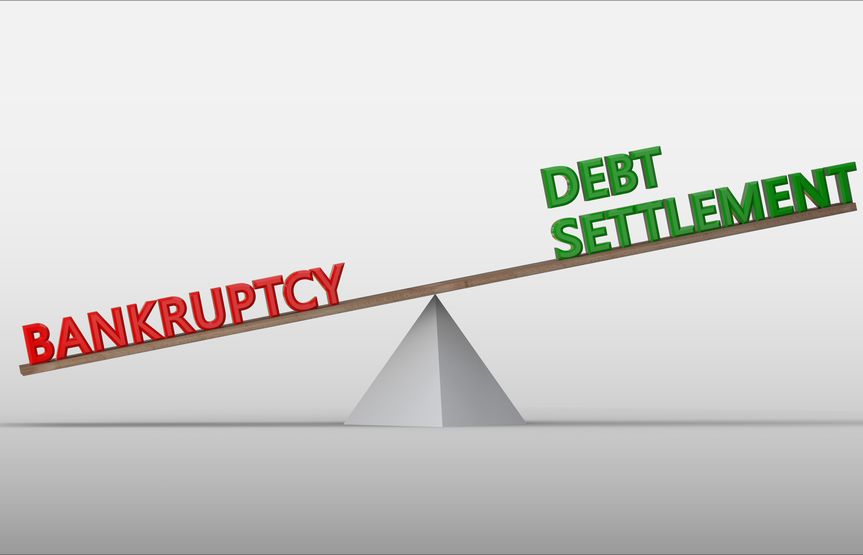Financial hardship can happen to anyone. A sudden job loss, health problem, death in the family, etc. can cause you to become burdened by debt. Does this describe you? Are you seeking a solution to your debt problems? Have you seen the advertisements from debt settlement companies offering to help settle your debt for less than what is owed?
You may feel the solution they are offering sounds better than the “negative” things you have heard about filing bankruptcy. But, there are drawbacks to the debt settlement process that may not make it the better solution to your financial problems.
What is Debt Settlement?
Debt settlement typically involves contracting with a debt settlement company to handle the negotiations for you. For a fee, the company will negotiate with your creditor to accept a reduced lump-sum payment of what you owe them, mostly on unsecured debt.
Once you contract with the company, you will stop paying your creditor. You will then make monthly payments into a savings account held by the company. When the debt settlement company believes you have enough in the account to make a reasonable lump-sum offer to your creditor, it will negotiate with the creditor to accept the smaller amount. This process is repeated until all the debts you wish to pay are handled.
Debt Settlement vs. Bankruptcy
The debt settlement solution may seem more attractive than bankruptcy, but it may not prove true. Here are some ways debt settlement may not be the better solution.
Debt Settlement Could Take Longer
Depending upon the amount of debt you hope to settle, debt settlement could take as long as 3 to 4 years to accomplish. This compares to a Chapter 7 bankruptcy which typically takes 3 to 4 months to complete.
Debt Settlement May Cost More
During the time you quit paying your creditors and put money in your debt settlement account, interest and late fees accrue on the balances you owe. This means it may take more money to settle with the creditor. Also, you will have to pay the debt settlement company a fee when the debt settles. Debt settlement companies typically charge a fee equal to 20% of the debt they help you settle. With a Chapter 7 bankruptcy, your unsecured debts could be discharged with no cost to you except a lawyer’s fee and court costs. Most bankruptcy lawyer’s fees are significantly less than what you might have to pay a debt settlement company.
Debt Settlement Offers No Protection from Creditors
A debt settlement company has no means of stopping your creditors from harassing you during the time you are putting money into the debt settlement account and not paying them. Nor can the company stop a creditor from filing a lawsuit against you, garnishing your wages,or recording a judgment lien. In contrast, as soon as you file bankruptcy a court order known as the automatic stay is issued to your creditors. This order prohibits them from contacting you and harassing you for payment. It also prohibits them from taking any collection actions against you during your bankruptcy.
Debt Settlement Can Cause Tax Liability
The Internal Revenue Service can regard forgiven debt as taxable income. In debt settlement, a creditor typically reports the amount of forgiven debt to the IRS. They then send you a 1099 C that you have to report on your taxes. Creditors may also report debt forgiven through bankruptcy to the IRS. But, bankruptcy and tax laws generally stop it from being counted as taxable income.
These are a few of the ways that debt settlement may be less beneficial than bankruptcy as a solution to your financial troubles. To learn what may be the best solution for you, contact us for a free evaluation of your financial situation. Let our family help your family.

